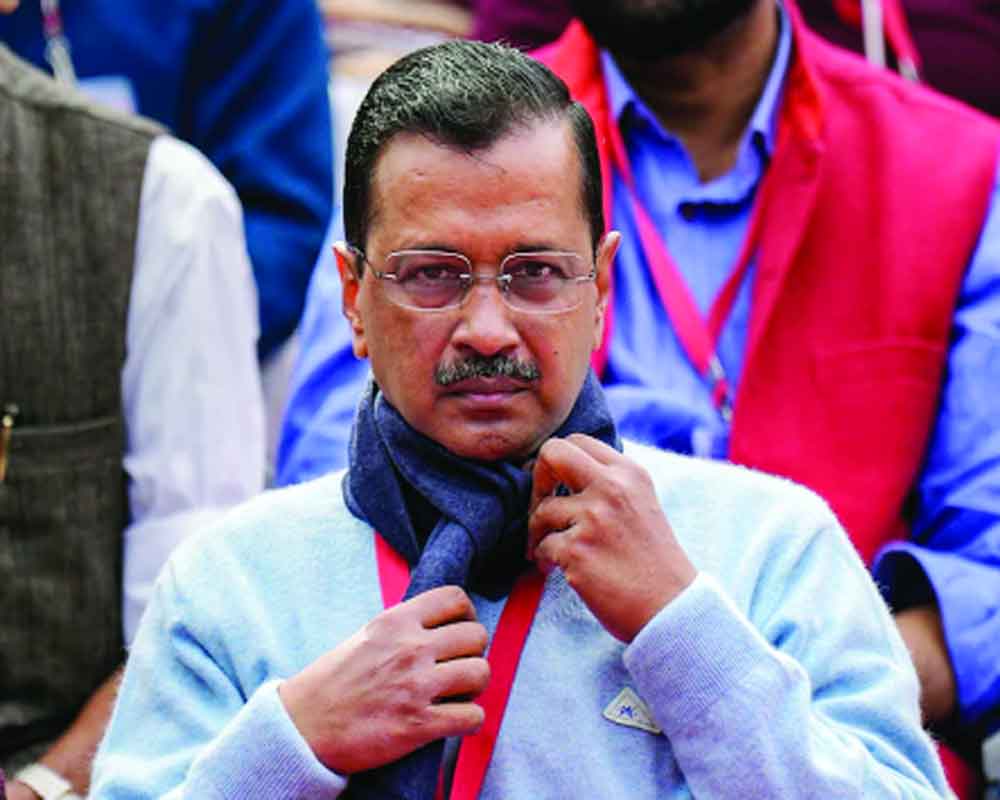Kejriwal’s arrest gets international attention; vendetta politics may boomerang on ED
Brought to the Rouse Avenue Court amid high drama, Delhi Chief Minister Arvind Kejriwal has described his arrest by the Enforcement Directorate in the excise policy case as a “political conspiracy.” Himself making submissions in the court after taking the special judge’s permission, he expressed confidence that the public will give a “fitting reply to this injustice”. Seeking to establish a link between the Electoral Bond donations received by the ruling party and his arrest, the Delhi Chief Minister said that people were being turned ‘approver’ in the case and being forced to change their statements. “My arrest by the ED is a political conspiracy ... the approver gave the BJP Rs 55 crore,” he said. As a precursor to this setting, Kejriwal’s wife, Sunita, broke her silence and hinted at the impending revelation of this crucial piece of information. Kejriwal, known for his anti-corruption stance and vocal criticism of the Centre, was arrested last week on charges of being embroiled in a multi-crore liquor scam. The arrest sparked widespread outcry and protests, with supporters of Kejriwal alleging political vendetta and the BJP’s bid to settle political scores with the AAP upon losing the MCD elections after 15 years. Apart from being charged with soliciting kickbacks from liquor traders in exchange for favours, the Delhi Chief Minister is also accused of being the “kingpin and key conspirator” in the now-scrapped policy. The agency has already arrested at least 14 top AAP leaders, including Deputy Chief Minister Manish Sisodia and Minister Sanjay Singh, in connection with the case.
Meanwhile, the international community has also been drawn into the fray, with the US making remarks regarding Kejriwal’s arrest that have drawn the ire of Indian officials. The US State Department expressed concern over what it termed as “the apparent suppression of dissent” in India, calling for due process and respect for human rights. However, Indian authorities swiftly responded, asserting that the comments were unwarranted interference in the country’s internal affairs. Germany was the first country to speak against Kejriwal’s arrest. Whenever a politician is put behind bars, there are consequences to it. The Union Government should be doubly sure that it has a watertight case against the accused person, else there are high chances that it will boomerang. Due to the lack of information on the case in public domain, we shall assume that the authorities have a strong case against the Delhi CM and that due process of law would be followed. But if it is an exercise in haste, Kejriwal’s words might prove prophetic as elections are just around the corner. The citizens are discerning enough to read any signs of political vendetta. The outcome of this legal battle and its broader implications remain uncertain, but one thing is clear – the events unfolding around Kejriwal have captured the attention of the nation and the world, highlighting the enduring struggle for transparency, accountability and justice in the corridors of power.


























